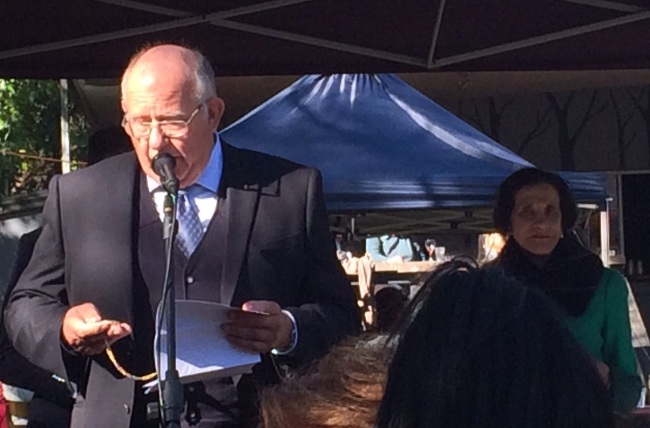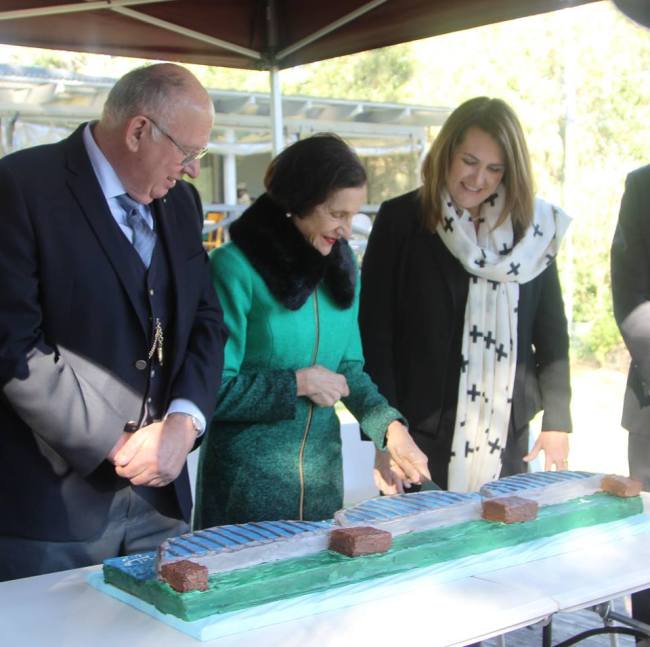In 1902, Australia was the first country in the world to give women both the right to vote in federal elections and the right to be elected to parliament on a national basis. New Zealand had granted women the right to vote in 1893.
[www.australia.gov.au/about-australia/australian-story/austn-suffragettes]
As with Federation, Sir Henry Parkes did not live to see this milestone reached, but he had been a strong advocate. In 1890 and 1891, as Premier of New South Wales, he introduced electoral reform bills into Parliament that included provision for the women’s vote. They were defeated, but the issue had at last begun to attract publicity. [www.parliament.nsw.gov.au/about/Pages/Women-in-Parliament.asp]
The following report was published in the Clarence and Richmond Examiner (Grafton, NSW), Saturday 16 July 1892 [see National Library of Australia’s Trove database: http://trove.nla.gov.au/newspaper/article/61245285#]
In Defence of Woman
AT a public meeting in connection with the Women’s Christian Temperance Union, Sydney, Sir Henry Parkes occupied the chair, and moved “That this meeting is of opinion that the enfranchisement of women is absolutely necessary to the carrying out of her duties as a Christian woman and a citizen.” It was, he said, a healthy sign that among women themselves, and not confined to any particular class, there was a far-spreading belief that she was entitled to political equality with man, and that human society would be all the better for that equality. (Cheers).
They were told by some objectors that whenever a nation was in the throes of a crisis, when fighting had to be done and blood shed, the armies bf the State were composed exclusively of men, and therefore as this highest of all obligations in a time of peril did not fall upon woman, that alone relegated her to a different place in the policy of the land.
But was it not true that every man who fought for his country, every man who died for his country, left in that country some woman, mother, sister, wife or sweetheart who suffered as much as he, probably much more, and who by reason of his sacrifice would have a to make sacrifices also in taking his place, in doing what he would have to do if he were still alive? Was not her share then as equally heroic as that of the men who actually went into the field, imperilled their lives and too frequently lost them !
If democracy mean political equality, an equal standing, for every human being, what did they call, this but a mockery of equality? Did they not every day of their lives in nearly every walk of society see women who by reason of death, or perhaps cruelty, or perhaps misfortune, had to do in the temporal world all the hard barren fighting for the bread for the family which man in ordinary circumstances had to do? And did they not see, when women were compelled to take this stand and to pursue this hard work, that their energy, their intelligence, their sense of right and wrong, their sense of propriety and their power of endurance were seldom second to that of man?
lt seemed to him, on every ground of consideration, that in a country like this – professing to deal with equal laws, to distribute equal political privilege – women were as entitled to equal rank with man in saying who should make the laws of the country.
On the ground of political right, he should like to know how her claim to suffrage could be denied ? They compelled her to obey the laws, they punished her at every step according to her offences for any breach of the law, even to taking away her life in extreme cases. If, then, she was compelled to obey the laws of the country, how could they on any reasonable ground deny her the right to exercise her voice as to who should have a voice in making those laws?
On the ground of national policy, would anyone suppose that a nation would be the safer, the loftier in sentiment or the more enduring in public sentiment by the exclusion of women from a share in the national council? They know, on the other hand, that her influence would tend, on the whole, to elevate, to refine, and to raise the character of the nation if she was a member.
That had been exemplified in Wyoming. The time came in Wyoming, when it was necessary for women to undertake nearly every kind of public duty, even the duties of sheriff. She had to do that from sheer necessity. There were not men to do it, not men of competent fitness, and women were permitted not only to vote but to join in making the laws, to act as sheriff and to fill nearly every civil office, And she performed the duties pertaining to those great civil offices in the territory of Wyoming – which was then not a state but a territory, where government’ was still in a crude form – she’ discharged those duties so efficiently, so much to the satisfaction of the Commonwealth of America, that when Wyoming was admitted as a state she was allowed, as an exception to others of the United States, still to possess that great privilege.
And with that wonderful example of how completely she fulfilled her mission, he could not see how any reasoning man could raise an objection on the grounds which they had heard so often put forth. His own belief, in judging from long experience and opportunities of observation second to few men, was that if women were admitted to the franchise tomorrow, the effect of her vote would be seen in the character of the first legislature that she had a share in creating.
They told him that a great mass of the women would abstain from voting, that the influence of the habits of life in which they had been reared would still so cling to them that they would not avail themselves of this privilege. But was it not a fact that a large number – probably half of the males – abstained from voting, not from motives of delicacy or refinement, but from gross motives of indulgence, simply because it was too great a tax on the time which they desired to devote to making money or to personal enjoyment ?
A woman would not abstain from voting for the sake of a champagne lunch, for the sake of driving some hard bargain with someone not so keen-witted as herself. In his judgment, they would find women voting in a vast number of instances, and after a year or two in probably quite as many cases as her brothers or her other relatives.
What would be the effect? Could they suppose for one moment, with their knowledge of what women were, taking them good and bad, taking them all through, that they would vote for a man addicted to drinking habits ? For a man notoriously an enemy to the peace of society? For a man who neglected, or ill-used his wife and children ? Might they not be certain that in the general run of cases their votes would be cast in favor of “brightness, of purity, of compassion for the infirm and destitute and of care of the rising generation ?” And was there not a heap of social questions where their votes in every case could not be bribed, could not be led astray ?
But they were told that woman would vote under the influence of her husband ? Suppose she did ; was that not better than voting under the influence of a half-drunken, mercenary electioneering agent. Would her husband’s influence in the majority bf cases not be a sounder, a more discriminating influence, a more Christian influence, than the influence of more than half the men who were engaged in the conduct of elections at the present day?
Therefore on the ground of political right, on the ground of national policy, and on the ground that she was a human responsible being, woman was as justly entitled to vote as the proudest man among them. She had in charge that divine principle of volition, of aspiration called life; she must account for the way in which she used it – neither her father, nor her brother, nor her husband, nor her sweetheart could account for her – she must account for how she had used that divine principle in he known as life, for every intelligent notion, for every time she was in any way called upon by her conscience to surrender part of its ascendancy to some chosen object – seeing that In this way, she must as a member of human society account in this world to the laws of the country, and in the next to her Almighty God for her human actions, surely they could not deny her an intelligent voice in governing the country in which she lived. (Loud cheers)
— Daily Telegraph






